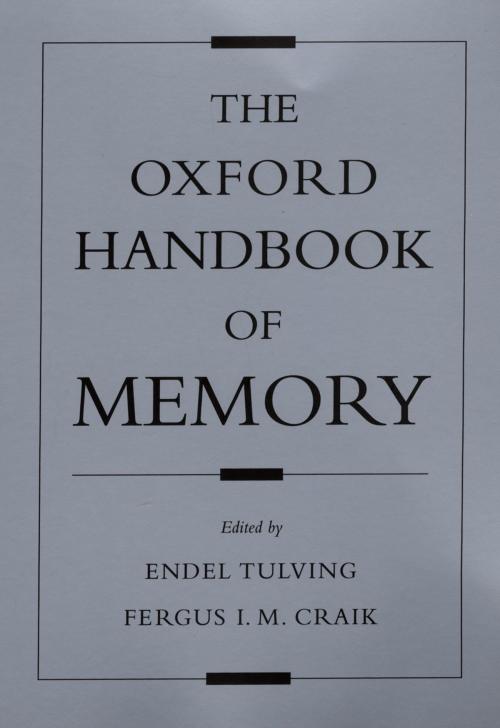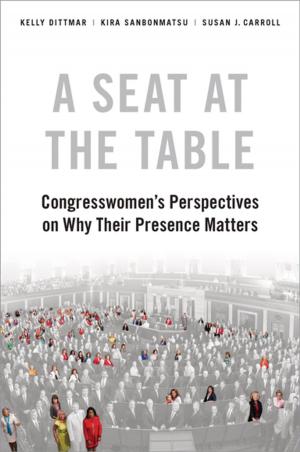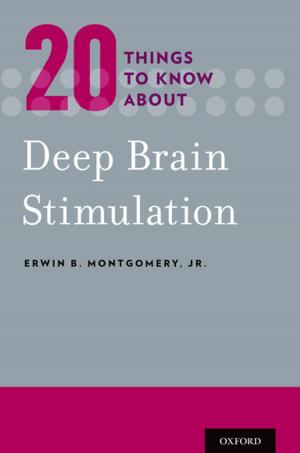The Oxford Handbook of Memory
Nonfiction, Health & Well Being, Medical, Specialties, Internal Medicine, Neuroscience, Psychology, Neuropsychology, Cognitive Psychology| Author: | ISBN: | 9780190292867 | |
| Publisher: | Oxford University Press | Publication: | May 5, 2005 |
| Imprint: | Oxford University Press | Language: | English |
| Author: | |
| ISBN: | 9780190292867 |
| Publisher: | Oxford University Press |
| Publication: | May 5, 2005 |
| Imprint: | Oxford University Press |
| Language: | English |
Written by the world's leading memory scientists in a highly accessible language, this volume brings together facts and theories of cognitive psychology; memory development in childhood and old age; memory impairment in brain injury and disease; the emergence of memory functions from the brain; as well as reviews of current behavioral, neuroimaging, and computer simulation theories of memory. philosophers and thinkers for hundreds of years. The last decades in particular have seen the emergence of a genuine science of memory, based first on behavioral studies and more recently on the new technologies of brain scanning. These recent studies have resulted in theories that are rich, complex, and far-reaching in their implications. The Oxford Handbook of Memory lays out these theories, and the evidence on which the theories are based. The important new discoveries of the last few years are described, along with their consequences for professionals in the areas of law, engineering, and clinical medicine. Endel Tulving and Fergus Craik, two world-class experts on memory, provide this handbook as a guide to the dynamic and exciting field of memory research. Individual chapters are written by eminent researchers who provide insight into their special areas, and outline challenges for the work that lies ahead. The book is exhaustive in its coverage-examining such topics as the development of memory, the contents of memory, memory in the laboratory and in everyday use, memory in decline, the organization of memory, and theories of memory-making this book ideal for psychologists, memory researchers, neuroscientists, and graduate students of psychology.
Written by the world's leading memory scientists in a highly accessible language, this volume brings together facts and theories of cognitive psychology; memory development in childhood and old age; memory impairment in brain injury and disease; the emergence of memory functions from the brain; as well as reviews of current behavioral, neuroimaging, and computer simulation theories of memory. philosophers and thinkers for hundreds of years. The last decades in particular have seen the emergence of a genuine science of memory, based first on behavioral studies and more recently on the new technologies of brain scanning. These recent studies have resulted in theories that are rich, complex, and far-reaching in their implications. The Oxford Handbook of Memory lays out these theories, and the evidence on which the theories are based. The important new discoveries of the last few years are described, along with their consequences for professionals in the areas of law, engineering, and clinical medicine. Endel Tulving and Fergus Craik, two world-class experts on memory, provide this handbook as a guide to the dynamic and exciting field of memory research. Individual chapters are written by eminent researchers who provide insight into their special areas, and outline challenges for the work that lies ahead. The book is exhaustive in its coverage-examining such topics as the development of memory, the contents of memory, memory in the laboratory and in everyday use, memory in decline, the organization of memory, and theories of memory-making this book ideal for psychologists, memory researchers, neuroscientists, and graduate students of psychology.















